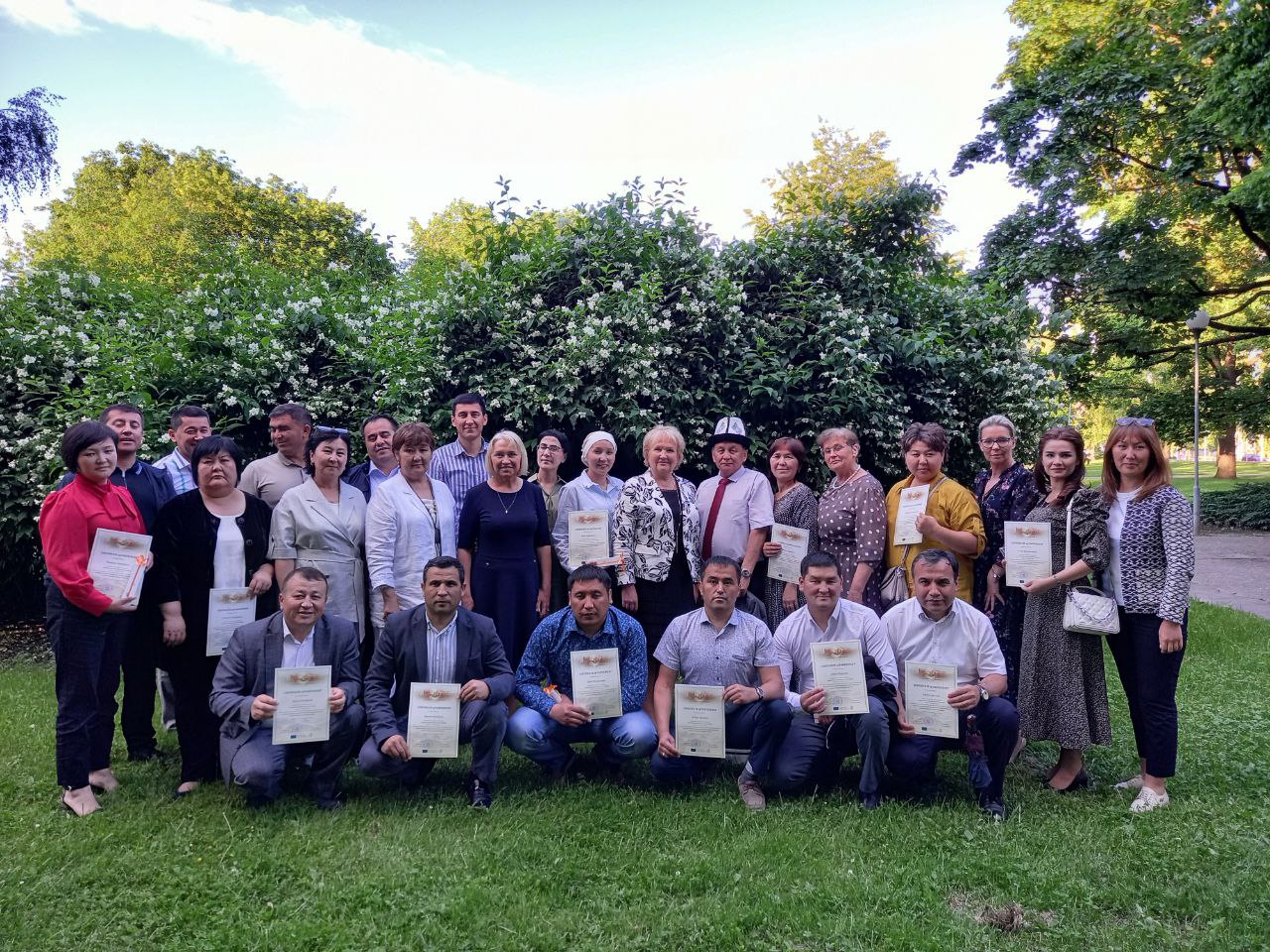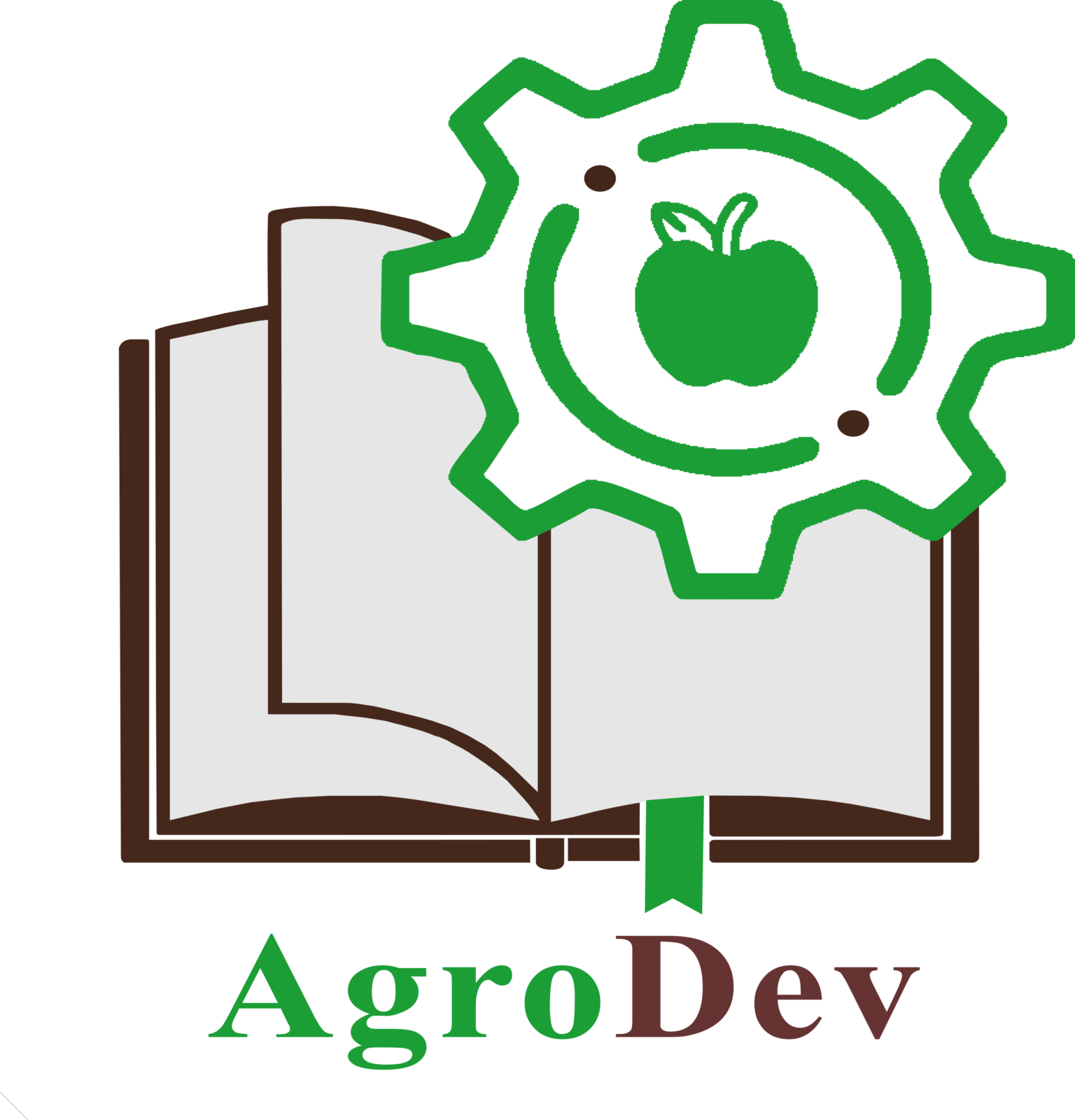Introduction. Nowadays, training of competent specialists for agricultural sector is getting more and more important, and development of production of high quality and safe agricultural products, both for domestic and foreign markets, and increase of export potential of domestic products fully depends on their knowledge, skills and abilities. The implementation of AgroDev project "Improvement of higher education content in Uzbekistan and Kyrgyzstan in support of industries supporting sustainable production of quality agricultural products" is aimed at modernization of educational programs related to agro-industry.
In this context, a training seminar was organized within the AgroDev project at the Latvian University of Natural Sciences and Technologies (LLU, Latvia) from 12-19 June 2022. The workshop was attended by 6 teachers from 4 partner universities in Central Asia: Kyrgyz National Agrarian University named after K. I. Skryabin, Naryn State University named after S. Naamatov, Tashkent State Agrarian University and Samarkand branch of Tashkent State Economic University.
The main objectives of the seminar:
1. to study modern technologies of organic production and food safety requirements
2. to improve the training and methodological materials
Seminar methods:
1. Acquaintance with modern developments on new products from plant and animal raw materials, their production and nutrition technology,
2. individual meetings of the participants with LLU colleagues to modernize their teaching and learning materials
Seminar results:
LLU "Latvia University of Life Science and Technologies" provides versatile and unique study program related to advanced agriculture, veterinary medicine, food production, forestry and landscape architecture, specializing in sustainable use of natural resources, aimed at improving the quality of life of the society. The university is located in Jelgava, an old cultural town just 40 km from the Latvian capital Riga. Jelgava is recognized as a true student city.
The participants of the seminar, during the meeting with the Dean of the Faculty and the Head of LLU Smart Technology and Knowledge Transfer Department, were introduced to the state-of-the-art developments in new food products made from raw materials of plant and animal origin, their production and nutrition technologies; bioactive compounds and application of new packaging materials and technologies in food production.
Individual meetings of the working groups were held with the participants of the seminar to discuss with the LLU colleagues the modernization of the educational and methodological complexes, where the main attention was paid to the distribution of the number of program hours and topics of lectures and practical classes, depending on the universities.
During the visit to the Institute of Food Safety, Animal Health and Environment "BIOR" the participants were introduced to innovative methods creating new practically applicable knowledge in the field of public and environmental health, food, fish farming and veterinary medicine. Latvijas Piens" milk processing factory and "Maxima" retailer's branch presented the whole range of products and logistics chain. Participants visited fruit and vegetable processing company "Keefa" where organic natural products are produced, which were developed in cooperation with LLU experts and where special attention is paid to the selection of ingredients to ensure not only unique flavour, but also to ensure the necessary amount of vitamins and biologically active substances. Keefa, a fruit and vegetable processing company, produces organic products. Particularly interesting for participants was the introduction to the HACCP international standard vegetable processing company Kronis, which was founded in 1964 and has over 140 products for a wide range of consumers: ready-made soups, pesto, canned goods, juices, nectars, salads, lechos, jams, cereals, sauces and even confectionery - powdered cranberries. In the EU and worldwide, the demand for consumption of organic products is increasing rapidly, which in turn is a demand for organic farming. Organic production aims to improve the health of farmers, the general public by producing high quality food, raw materials and other products, preserving soil fertility and the environment, developing rural areas, and stimulating local and regional production. The production of foodstuffs is strictly monitored by the supervisory authorities, with a view to minimizing the market introduction of products of poor quality, which may undermine public health. Hence, the requirements for registration of permits and rules are established, regulating all processes in the food sector, establishing food safety requirements and obliging food processing facilities to implement and comply with the HACCP system - the international standard ISO 22000. HACCP is a set of fundamental rules that aims to protect the quality of goods and food and to control production processes. It is based on defining critical control points (CCPs) to monitor compliance with these critical limits.
Lolita Duguet's presentation on medicinal herbs at the Mint House also left participants with positive impressions on the further development of agribusiness areas.
Very informative was the visit to the educational and research farm of the Latvian University of Science and Technology "Pēterlauki" and "Vecauce", where Biruta Bankina introduced the participants to the scientific base and experimental plots, also a multi-branch farm engaged in the breeding of cattle, including repair breeding. The institute strengthens the scientific potential of the Faculty of Agriculture and promotes the quality of courses related to horticulture.
The participants could see firsthand the experience of private farms and companies, where increasing the productivity of organic production and quality of products maximizes the use of biological factors to improve natural soil fertility, agro-ecological methods of pest and disease control, and the benefits of biodiversity, particularly local and unique species, varieties, breeds, etc.
Conclusions. The following conclusions were drawn during the training sessions with the leading specialists of the abovementioned companies:
1. The specifics of organic farming make it necessary to:
- Introduction of a specialisation in "Organic Production" in higher education institutions;
- conducting training and capacity building courses for farmers;
- exchange of experience and knowledge with other countries.
2. Introduction of HACCP in processing plants is mandatory, in order to carry out regular identification, analysis and management of harmful production factors that have a negative impact on the safety of the final product supplied to consumers.
3. Training of specialists is also conditioned by the necessity of solving ecological problems resulting from intensive farming methods and the necessity for people to realize themselves as a part of the surrounding world, not as its proprietor.
4. The obligatory implementation of the acquired knowledge and experience into the practice of the partner universities.
We express our sincerely gratitude to the coordinators of the training workshop, the management of LLU for the high organization and conduct of the training workshop. We say thanks to all colleagues from SA universities, LLU faculty and staff for their warm welcome and hospitality. Our sincere thanks to the AgroDev project for the opportunity to participate in the training seminar. We are looking forward to further cooperation.



